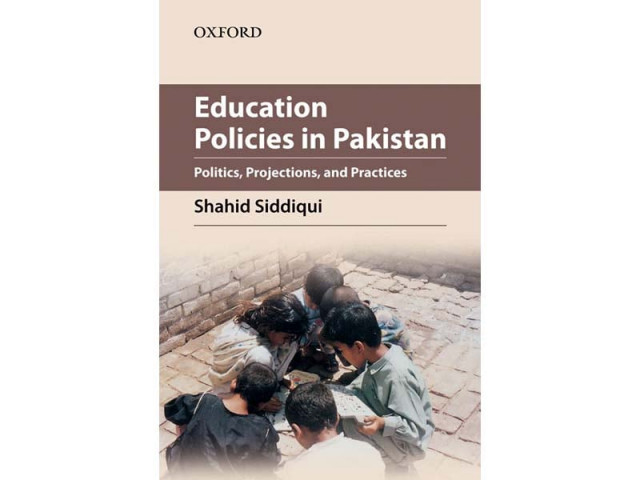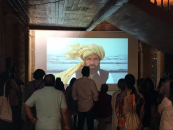Sensible approach: Looking back to look forward
Shahid Siddiqui’s book is a timely addition to discourse on education

Shahid Siddiqui’s book is a timely addition to discourse on education
Shahid Siddiqui took up the herculean task of penning a history of this journey on his shoulder and authored a seminal book titled Education Policies in Pakistan: Politics, Projections, and Practices. His book is a timely addition to the discourse about one of the most important issues in the country.
Siddiqui has an extraordinary flair for addressing significant issues in the easiest of words to make the discourse comprehensible to the larger audience.
It cannot be denied that a learned scholar indulges in discussing complicated, harder-to-understand issues. However, he or she must make sure ideas are easily communicated instead of being drowned in philosophical jargon.
That’s exactly what Siddiqui had achieved through his remarkable book Language, Gender and Power: the Politics of Representation and hegemony in South Asia. His latest offering follows in the footsteps of its predecessor.
Paulo Freire, a Brazilian educator and philosopher, defined education in a truly inspiring way in his book Pedagogy of the Oppressed. He wrote: “Education either functions as an instrument which is used to facilitate integration of the younger generation into the logic of the present system and bring about conformity or it becomes the practice of freedom, the means by which men and women deal critically and creatively with reality and discover how to participate in the transformation of their world.”
Almost all successive governments in the country worked on functional literacy rather than focusing on critical literacy, as described by the author. The definition of literacy kept changing, which affected its rate and targets set by various governments.
Siddiqui starts out by telling the readers about how ideology impacts the education system in any society. He goes on to mention the concept of hegemony introduced by Italian Marxist scholar Antonio Gramsci. The policies introduced in Pakistan reek of their turbulent times and often bear vested interests of the state apparatus.
Unfortunately, the history of education or its policies in Pakistan has been a history of dictation by the rulers, of ambitious and unrealistic targets that never saw the light of the day. It has been a history of tyranny that tried to use education as a tool. It is a history of reign of regressive ideas and hegemony of certain languages, namely English and Urdu, which barricaded the progress of different groups of people in the country.
As shown in this book, it will be wrong to say that education in our beleaguered country was given its due priority and importance and was driven by secular or progressive policies.
Siddiqui’s book is comprehensive because it covers the education policies in a holistic manner. However, at times, it reads like a monotonous manuscript. The reason for which is that the author covers various topics — such as the vision of education, literacy and universal primary education and others — in a fixed manner as he treats each topic in the same way and looks into each sphere through education policies implemented so far between 1947 and 2009. This could have been avoided by giving more space to the discussion and analysis sections.
The author’s books will prove to be a valuable asset for educationists, organisations working for better education, activists who see education as a way forward and students on whose shoulders now lies the burden of responsibility.
Title: Education Policies in Pakistan
Author: Shahid Siddiqui
Publisher: Oxford University Press, Pakistan
ISBN: 9780199402076
Price: Rs1,095
The writer is a subeditor at The Express Tribune’s Web desk
Published in The Express Tribune, September 18th, 2016.
Like Life & Style on Facebook, follow @ETLifeandStyle on Twitter for the latest in fashion, gossip and entertainment.


















COMMENTS
Comments are moderated and generally will be posted if they are on-topic and not abusive.
For more information, please see our Comments FAQ